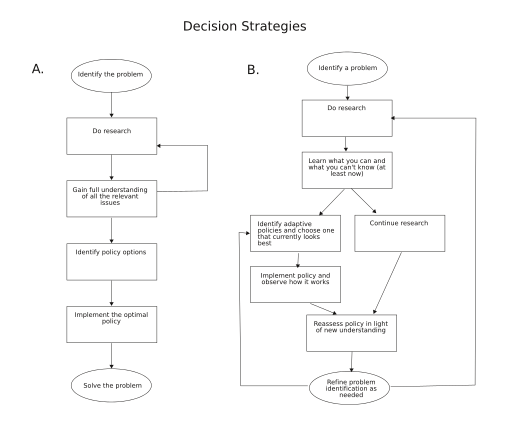Do developers have a duty to be loyal to their stakeholders? Some suggestions on ethics

We see many instances in the cryptospace which shall not be named where developers take money from investors or develop a product which they hold a pre-mined token which benefits from stakeholder loyalty yet the developers decide to go rogue, ignore the best interests of their stakeholders, and ignore ethics. Why is it a common pattern for developers to ignore ethics?
The problem of rogue development teams
As the industry grows (the market cap hit 200 billion recently), the responsibility also increases. We as an industry are gaining power and we are going to be judged by future participants based on some of the stupid mistakes made. All industries have entities which make mistakes and in fact all entities in nature make mistakes but the issue is do lessons get learned from these mistakes? Are best practices and common principles being developed?
In most cases developers do not offer a core mission, or a system of ethics which they follow. One developer who stood out from the rest was Dan Larimer who from the very beginning of Bitshares articulated his philosophy and his ideological preferences. This allowed a community to form early on knowing that the lead developer at least cared enough to think about ethical matters beyond getting rich.
This is not to say that other developers haven't cared about ethics as we do see this in some other instances but the fact is that ethics do not seem trendy. So I'll propose a system of ethics which I believe could benefit the space and consider this system of ethics to only be a rough draft.
Dana's ethical guide for development in cryptospace
- Always put the individual first.
- Always seek feedback.
- Avoid making decisions alone.
- Focus on producing good consequences through technological design.
Now to discuss each of these points...
Always put the individual first

By Friedrich Engels (File:Y-Stirner.png) [Public domain], via Wikimedia Commons
The number one is the true center of power, the most high, the one which all service providers and produce makers must be most loyal to. This number one in my opinion is termed: "the individual". The individual can be the customer, the user, the client, the patient, the citizen, the stakeholder, but an individual is generally recognized as an account holder and a unique person. All we build is for advancing, empowering, entertaining, "the individual".
Individualism defined by Wikipedia:
Individualism is the moral stance, political philosophy, ideology, or social outlook that emphasizes the moral worth of the individual.[1][2] Individualists promote the exercise of one's goals and desires and so value independence and self-reliance[3] and advocate that interests of the individual should achieve precedence over the state or a social group,[3] while opposing external interference upon one's own interests by society or institutions such as the government.[3] Individualism is often defined in contrast to totalitarianism, collectivism, authoritarianism, communitarianism, tribalism, and more corporate social forms.[4][5]
This focus on the individual requires in my opinion political and ideological neutrality. We cannot know what is best for the individual by assumptions as only the individual can signal through feedback what is best for them. A group of individuals giving feedback signals what is best for that group of individuals. Max Stirner for those interested in philosophy clearly articulated the concept of individualism in the work titled "The Ego and It's Own". That work led to the political ideology known as "individualist anarchism". I'm not promoting any specific ideology as I think ideology is a tactic rather than about ethics but I do suggest that when considering what features to build, what decisions to take, what designs to make, the model for working out what to do should be based on "do what is best for the individual".
Always seek feedback
To always seek feedback has to be explained as always collect as much data on the preferences of your user base, stakeholders, etc. To seek feedback is to guide the design of the product and or service in a data driven way. The stakeholders by their use can produce statistics to inform future development decisions, and the public sentiment of the community can reveal by data science what the current preferences are. Stakeholders are the people who have something to gain or something to lose by your development. This could be a small group of people or it could be billions of people, and the more people who will be effected by what you are doing the more public sentiment data streams will matter. If the ultimate goal for instance is to empower the individual who uses your technology then the function of your technology is "user empowerment" and the true job or industry is the "user empowerment" industry.
This is just an example but recall that if the individual is the center of gravity then any technology which empowers the individual has value. A technology which disempowers the individual not only will not have value in this context but will have negative value. So this is important to note, if developing a technology which utilizes centralization or decentralization that either of these options are mere tactics servicing the true mission of the technology of empowering the user.
Avoid making decisions alone
It's not enough to merely collect a lot of data in the form of public sentiment, or user sentiment, or use statistics, and then have one person make a decision all by his or herself. That one person being responsible for such a serious decision is bound to make a mistake somewhere down the line so the solution is to take big decisions and divide them across a group. This can be a small group like a focus group or it can be the stakeholders collectively deciding using some voting, or algorithms, or mechanism of consensus not yet invented. The point is that if decisions can be made collectively as a "union of individuals" then these decisions also divide responsibility away from a single person and shift the weight where it belongs to the stakeholders who have the most to gain or lose.
It is recognized that not all decisions can efficiently be made this way. So this is why I said avoid. If it's a situation where only one person can make the decision quickly then that one person is responsible but the point is no one should see giving one person a lot of decision responsibility as ideal either for that one person or for the stakeholders.
Focus on producing good consequences through technological design
This is perhaps the most important and key part. All of the above points only matter if at the end of the day they measure up. By measuring up, I mean we arrive at "best practices" or "ethics" based on their ability to consistently produce "good" consequences. Good of course is defined by each of us subjectively, but in the situation where we form a stakeholder group of shared interest then good would be defined as what is good for the stakeholders. This could be long term profitability of a company, or it could be future growth, or it could be many things, but there is always a score, a measure, a metric which is used to determine success or failure of a project, product, etc. It's up to stakeholders to reach a consensus on what they want their metrics of success to be, and how they want to define good and bad outcomes for their project.
Conclusion

By Granger Morgan, M., et al. [Public domain], via Wikimedia Commons
The above list are just minimal ethics that I suggest for consideration by developers. There could be more added but at the very minimum put the users of your technology first, care about what your users think and feel, avoid taking on more individual responsibility than necessary, and try to produce the best consequences for your stakeholders.
Too many people just cashing out from the cryptomarket and make people believe the projects are a reall thing
Thanks for sharing
I appreciate how you highlighed Dan Larimer and his ethics.
It wasn't too long ago (days maybe) he came back to see what was going on with STEEM and his comments under @dan showed he was a little "green and ill" as he observed SP rentals. :)
All I can say, is that I'm glad we are still in BETA and we are all learning how advantages can be better used (and abused when not carefully protected).
This is a good article, thank you for writing it.
There are so many rip-off sites around not just ICO Token rip offs, the temptation is one of greed, a fool and his money will always be parted. Don't even trust a company who show LTD company in-corporation in the UK this only costs £30.00 and a made up address.
It is an act of greed and selfishness that pushes some developers to act that way. But just as you posed, surely integrity and good ethics are more valuable than quick riches. This brings me to a post by @stellabelle, "integrity is better than money.
Great idea you presented with well explained ethics.